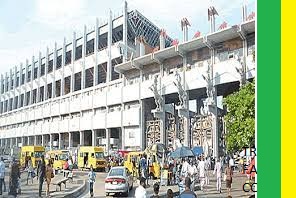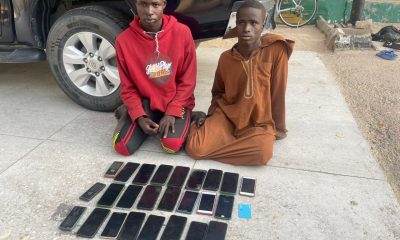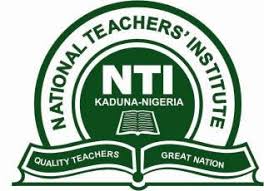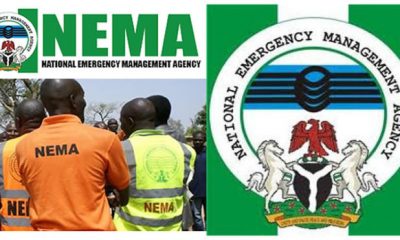NEWS
Nigeria’s GDP Grows by 3.19% in Q2 2024, Uwaleke Reacts
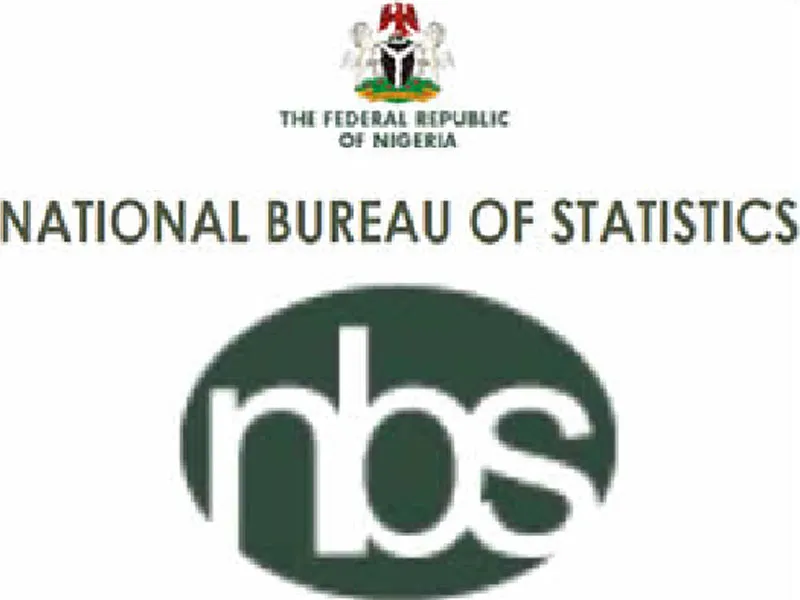
By Tony Obiechina, Abuja
Nigeria’s Gross Domestic Product (GDP) has grown by 3.19% (year-on-year) in real terms in the second quarter of 2024.
This was contained in the latest GDP report of the National Bureau of statistics (NBS) on Monday.
The growth rate is higher than the 2.
51% recorded in the second quarter of 2023 and higher than the first quarter of 2024 growth of 2. 98%.The performance of the GDP in the second quarter of 2024 was driven mainly by the Services sector, which recorded a growth of 3.79% and contributed 58.76% to the aggregate GDP.
The agriculture sector grew by 1.41%, from the growth of 1.50% recorded in the second quarter of 2023.
The growth of the industry sector was 3.53%, an improvement from -1.94% recorded in the second quarter of 2023. In terms of share of the GDP, the industry and services sectors contributed more to the aggregate GDP in the second quarter of 2024 compared to the corresponding quarter of 2023.
In the quarter under review, aggregate GDP at basic price stood at N60,930,000.58 million in nominal terms.
This performance is higher when compared to the second quarter of 2023 which recorded aggregate GDP of N52,103,927.13 million, indicating a year-on-year nominal growth of 16.94%.
Highlights of Q2 2024 real GDP performance (year on year), NBS latest: Real GDP growth 3.19% (Q1 2024 2.98%), Oil sector 10.15% (Q1 2024 5.70%), Av. Oil production 1.41mbpd (Q1 2024 1.57mbpd), Non-oil sector 2.80% (Q1 2024, 2.80%), Agriculture 1.41% (Q1 2024 0.18%), Manufacturing 1.28% (Q1 2024 1.49%), Trade 0.70% (Q1 2024, 1.23%), Transport -13.53% (Q1 2024 3.33%), ICT 4.44% (Q1 2024, 5.43%), Real Estate 0.75% (Q1 2024, 0.84%), Finance and Insurance 28.79% (Q1 2024, 31.24%), Education 1.92% (Q1 2024, 1.62%) and Health 2.41% (Q1 2024, 2.21%).
Top contributing sectors to GDP in Q2, 2024: Agriculture 22.62 (Q1, 21.07%), ICT 19.78% (Q1, 17.89%), Trade 16.39% (Q1, 15.70%), Manufacturing 8.46% (Q1, 9.98%), Finance & Insurance, 6.57% (Q1, 6.81%), Crude oil 5.70% (Q1, 6.38%) and Real Estate, 5.17% (Q1, 5.20%).
Reacting to the report, Capital market expert, Professor Uche Uwaleke of the Nasarawa State University, Keffi noted that the aggressive hike in monetary policy rate in February and March 2024 by the CBN took a toll on output in Q2 2024.
According to him, this may explain the decline recorded in major contributors to GDP such as Manufacturing, Trade, ICT and Real Estate.
“The impact of high cost of petroleum products manifested in the huge decline in Transport GDP from 3.33% to -13.53%. Just like in Q1 2024, when growth was driven by the oil sector, growth in Q2 2024 was also driven by the oil sector at 10.15%.
“Oil sector growth was aided largely by the increase in crude oil price during the quarter as average crude oil production fell (from 1.57mbpd in previous quarter to 1.41mbpd)
“The Non-oil sector performance was powered by the Services sector chiefly Financial services and ICT. This sector’s contribution to GDP in Q2 was 2.80%, exactly same as in Q1
“In my view, this identified growth pattern, weighted in favour of the services sector, is not healthy for a developing economy such as ours. Little wonder, economic growth does not appear inclusive, reflecting in rising unemployment and poverty levels.
“It is time we reset this faulty economic structure, leveraging technology, in favour of the productive sectors: Industry and Agriculture.
“Indeed, structural change is strongly recommended (by UNCTAD) as one of the ingredients of building productive capacities”.
NEWS
Energy, Solid Minerals Top Priority, Tinubu Tells German Businessmen
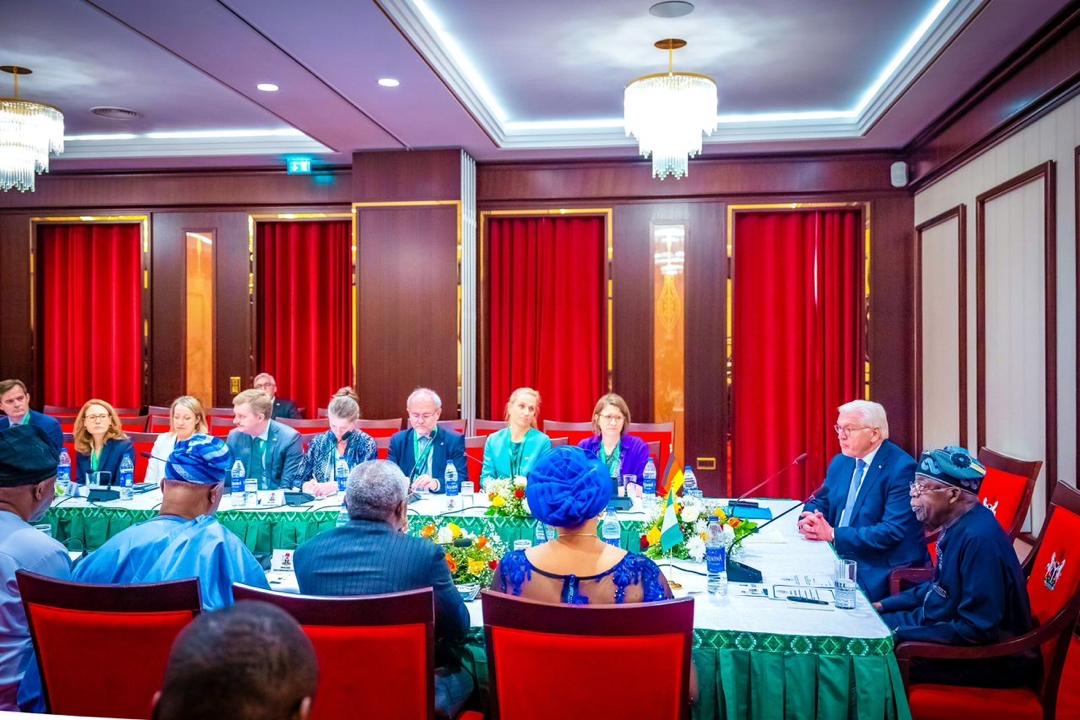
President Bola Tinubu, on Wednesday, assured the German government and businessmen of Nigeria’s preparedness to expand frontiers for investors by removing administrative bottlenecks in the energy and solid minerals sectors.
Tinubu said this at a business session during the State Visit of Mr Frank-Walter Steinmeier, the German President, at the Presidential Villa, Abuja.
He said activation of the latent potential in the energy sector remained central to Nigeria’s development.
“I welcome Mr President to Nigeria and the State House. Your visit is a significant milestone. And I must thank you for the warm reception when I visited Germany.
“We need each other, and you emphasised this in our private discussion.
Nigeria is going through a transformative period and trying to align with the best strategy and practices on good governance globally.“We like our relationship with you as friends and partners. Germany is well-industrialised and renowned for its sustainable infrastructure,” Tinubu said.
He reassured the German businessmen that Nigeria was ready and open for business.
“As you mentioned, you are ready to support Nigeria in the energy sector, which you have long been doing.
“Also, in alternative energy, we have the sun, and you have the technology. We should continue our partnership in every way that we can,” said the President.
Tinubu said the Ministries of Foreign Affairs, Solid Minerals, Power, Industry, Trade and Investment had been directed to work closely with investors to develop the energy sector.
“I will re-emphasise again and again, we must enhance the possibility of becoming highly industrialised by exploring opportunities in our natural resources,” he added.
Tinubu said the country’s reforms had been designed to bring long-term prosperity through sustainable and dependable frameworks.
“We are synchronising to ensure a grounded and flourishing partnership that brings prosperity to our people. We know that Germany has the capacity and is involved in regional cooperation and collaboration.
“We are glad that we are trading in Euro with you. We are more transformative than before. We have made changes in the way we do business. It is now easy in and easy out for investors.
“We are projecting investment in gas and alternative energy. Our transformation involves natural gas.
“We are leveraging solid minerals, particularly lithium. We have a dynamic, anxious-to-learn and flexible youth population.
“We have many Nigerian students who were trained in Germany. We want domestic investment that will promote growth in our economy. Equally, we need skill development,” the President said.
Tinubu noted that Small and Medium Enterprises were also being repositioned to play a more central role in development, assuring that bottlenecks to investments had been removed.
In his remarks, the German President assured Tinubu that there were also more specialised companies in Germany that would be encouraged to look towards Nigeria for expansion opportunities beyond the big brands in the energy sectors.
“There is a growing interest in Nigeria on the German side beyond those who are already here, like Siemens. Other companies are looking for investment opportunities, especially in renewable energy,” he stated.
In his presentation, Mr Dele Alake, the Minister of Solid Minerals Development, said Germany had a dedicated one billion Euro fund for diversifying the supply chain in renewable energy, and modifying the conditions could easily accommodate the opportunities in Nigeria’s solid minerals sector.
Alake said the critical minerals for energy transition, cobalt, nickel and lithium, were readily available in Nigeria.
“German companies can come in under the Renewed Hope Agenda that has sanitised the environment, enhanced security with a new architecture around solid minerals, created tax incentives and waivers for important equipment and provided opportunities for joint ventures,” he said.
He said pre-feasibility studies had been concluded, urging German investors to look to Nigeria for diversification of the energy supply chain.
Mr Wale Edun, the Minister of Finance and Coordinating Minister of the Economy; Dr Jumoke Oduwole, Minister of Industry, Trade and Investment; and Mr Adebayo Adelabu, Minister of Power, also made presentations at the business meeting.
The business delegation from Germany and their Nigerian counterparts commended President Tinubu for his long-term vision for the economy.
They also praised his courageous steps in repositioning Nigeria for greater prosperity by making the economy more globally competitive with streamlined foreign exchange and improved ease of doing business. (NAN)
NEWS
Nigerian Who Wrote WASSCE 17 Times Bags Distinction from London School

Dr Emmanuel Ahmadu, a Nigerian who wrote the West Africa School Senior Certificate Education 17 times, has earned a distinction from the prestigious London Graduate School in the UK.
Ahmadu, a Nigerian mental health advocate and accomplished professional based in the U.S., disclosed this in an interview in Lagos.
He said that he was also inducted as a Fellow of the Institute of Management Consultants (FIMC) in Lagos.
Ahmadu said that the formal induction ceremony and certification workshop took place in Lagos and UK on Nov.
26, where he was lauded for his exceptional contributions.According to him, this dual honour highlights his inspiring journey from writing O’level examinations 17 times, due to family instability, to becoming a globally recognised figure in mental health advocacy and consultancy.
Ahmadu said his new accolades would significantly amplify his global impact, which would enable him to contribute further to addressing mental health challenges, particularly among Gen Z, teenagers, and adolescents.
“My Fellowship, the highest grade of membership in the Institute of Management Consultants, will position me as a thought leader equipped to provide innovative strategies in tackling depression and suicide.
“This recognition is not just a personal milestone but a step forward in the global fight against mental health crises.
“It’s a call to action to innovate solutions that inspire hope and resilience”.
The Institute of Management Consultants, in its nomination statement, praised Ahmadu’s “outstanding academic and professional standing and demonstrated commitment to creating, maintaining, extending, and promoting the highest world standards of management consulting practice.”
Ahmadu said: “My certification as a Certified Management Consultant (CMC) will further enhance my credentials, making me to offer my expertise across over 50 countries, including the United States and the United Kingdom,” he said.
He said that his personal story had resonated globally, inspiring millions.
“A childhood marked by instability saw me attend 16 primary schools and 14 secondary schools, yet I persevered, ultimately earning two honorary doctorates and publishing in mental health journals”.
On Instagram (@mr.voiceover), Ahmadu shared, “Nothing is impossible with God.
“I’m forever grateful for this life-changing moment and determined to keep pushing forward in this journey to make a positive difference in the world. Glory be to God almighty,” he said.
He said that Prof. David Iornem, Director-General of IMC Nigeria, during the induction, remarked that he (Ahmadu) exemplified the transformative power of resilience.
“His expertise and leadership will undoubtedly elevate global efforts in mental health advocacy and management consultancy,” said Iornem. (NAN)
NEWS
Bill for Compulsory Counselling, Training of Convicts Scales 2nd Reading

A bill to amend the Corrupt Practices and Other Related Offences Act, 2000, has successfully passed its second reading in the House of Representatives.
The bill, which mandates compulsory counseling and training for individuals convicted of corruption-related offenses, was sponsored by Rep.
Kayode Akiolu (APC-Lagos State) during plenary on Wednesday.Leading the debate, Akiolu explained that the bill sought to amend Section 67 of the principal Act, introducing new provisions that were not part of the original section.
“These additional provisions, found in subsections 2, 3, and 4 of the amendment bill, require judges and magistrates to not only impose imprisonment and/or fines on those convicted of corruption but also mandate a minimum four-week anti-corruption counseling and training.
“The counseling and training will be designed and delivered by the Anti-Corruption Academy of Nigeria (ACAN) and aims to address the psychological factors related to corrupt behaviour.”
Akiolu emphasised that the training would help reform convicts by addressing their corrupt tendencies and could even transform them into advocates for anti-corruption efforts.
He added that this approach aligned with the reformative aspect of the criminal justice system, which focused not just on punishment but also on rehabilitation.
“As per subsection 4, the bill allows magistrates and judges to order convicts to cover the cost of their counseling and training, preventing additional financial burdens on the government.”
Akiolu further argued that if the bill is passed into law, it would strengthen the country’s fight against corruption.
He urged the House to support the bill for the country’s benefit, given the widespread negative impact of corruption.
Following the debate, the Speaker of the House, Rep. Tajudeen Abbas, referred the bill to the relevant committee for further legislative consideration.(NAN)







